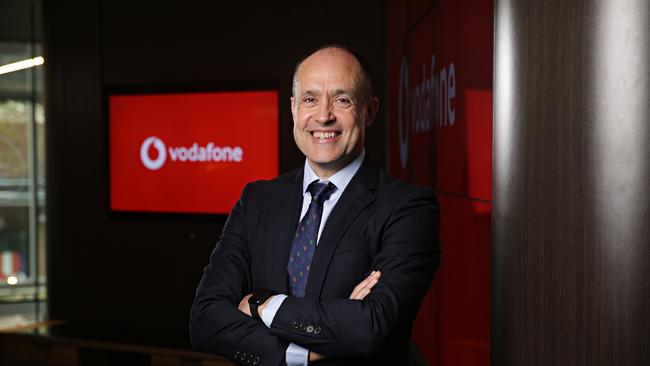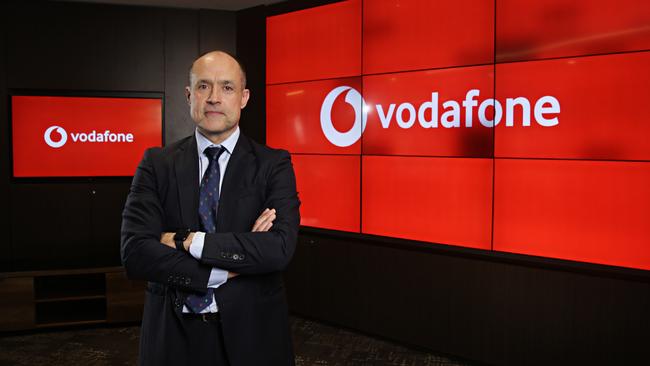ACCC approves Optus and TPG’s $1.6bn blockbuster deal to boost mobile coverage across regional Australia
Telstra’s regional monopoly may be smashed after the competition watchdog green lit a mega network sharing deal between the nation’s second and third-biggest telcos.

Telstra’s regional monopoly is set to be challenged after the competition watchdog endorsed Optus and TPG’s blockbuster $1.6bn network sharing deal, declaring it will enhance competition - a move that’s been hailed as a “big win” and “game-changer” for the bush.
Under the 11-year deal, TPG – which operates Vodafone as its flagship brand – will triple the number of mobile sites it has access to, transferring the few it has in areas where Optus doesn’t to the telco and decommissioning others.
TPG says this will allow it to expand its network to 98.4 per cent of Australia’s population, providing coverage to “most towns in Australia” for the first time.
If the Australian Competition and Consumer had blocked the deal, TPG said it would have cost them almost $6bn – three times the deal’s value – to achieve the same result.
Vodafone group executive Kieren Cooney says it was “a huge win for customers and regional Australia”.
“This will be a game-changer for the millions of Australians in our cities and regions who want great value and mobile coverage when travelling to all the places we love to visit,” Mr Cooney said.
“With this network expansion we will break the mobile duopoly that has limited customer choice in regional Australia for too long. We’ve listened to our customers and are excited to say Vodafone’s coming to town.”
While it was expected the ACCC would approve the agreement, it wasn’t certain until Thursday. The regulator knocked back a similar $1.8bn network-sharing deal between Telstra and TPG last year, ruling it was not in the best interest of market competition.
But ACCC commissioner Philip Williams said TPG’s agreement with Optus was different. The proposed Telstra/TPG tie-up risked making Telstra bigger and the ACCC said at the time that the benefit to the public was not likely to “outweigh the detriment” . Whereas analysts said earlier this year when the Optus/TPG deal was announced that it threatened to break up Telstra’s regional monopoly.
“The ACCC carefully considered the arrangement proposed by Optus and TPG, as it represents a structural change to the mobile services landscape,” Dr Williams said.
“The agreements will allow TPG to provide better coverage in regional areas, which will likely enhance its ability to compete during the term of the agreements, improving choice for regional consumers.
“The agreements are also likely to support Optus’ regional 5G rollout, particularly through access to TPG’s spectrum.”
The network sharing deal is set to begin next year. Under the agreement, Optus will receive about three-quarters of the $1.6bn sum – totalling $1.19bn – which will be put towards accelerating Optus’s 5G rollout across the country.
In return, TPG will increase its coverage from 400,000sq km to more than 1,000,000sq km.
Dr Williams said the ACCC found that the proposed agreement was unlikely to “substantially reduce infrastructure competition” from TPG, which is Australia’s third-biggest telco after Telstra and Optus.
“TPG currently has significantly less infrastructure and coverage in regional areas compared to Telstra and to a lesser extent Optus. The improvement in TPG’s services during the term of this agreement is likely to be greater than what TPG could have achieved on its own.”
Dr Williams also said that while the ACCC has found that the proposed arrangement is unlikely to substantially lessen competition, it does represent a “significant change in the structure of the mobiles market”. “We will continue to monitor this as part of our telecommunications functions.”
TPG chief executive Inaki Berroeta said the only “feasible” way to expand network coverage was through partnerships.

“The message is (the Optus network sharing deal will) double the network and deliver better value. That’s the reality,” Mr Berroeta said.
“We will be present in places, providing a different choice, a different option to many people that maybe in the past, didn’t have.”
During the ACCC review, market participants proposed a range of measures for improving mobile services in regional areas, including that Optus and TPG should provide open wholesale access to their networks, divest certain spectrum, and make obligations to undertake certain regional investments.
But Mr Berroeta said wholesale access was already available on TPG’s and Optus’s networks.
“Pretty much every network in this country is already open for wholesale, so to say that should be open, I don’t really know what’s the point.”
Optus interim chief executive Michael Venter said the deal would “accelerate 5G rollout in the regions”, expanding the number of sites to 1500 in the next four years and to 2444 by the end of the decade.
“This arrangement will allow Optus to press the fast-forward button on 5G infrastructure roll-out to more regional communities. It will also provide Optus with access to more spectrum so regional customers can experience 5G’s fast speeds, low latency, and increased capacity,” Mr Venter said.
“This is so important for customers given how essential mobile services are to our daily lives, whether it’s browsing the internet, connecting with friends and family on social media or streaming our favourite movies and TV shows.
“We are very excited to be able to progress this network sharing agreement following today’s decision and to continue delivering for our regional customers.”
Analysts have said the network sharing agreement would make Telstra’s rivals more competitive in regional areas.
“As such, Telstra may need to ramp up marketing spend, especially in the context of a potential MOCN (multi-operator core network) deal between Optus and TPG. The 3G switch-off ... could be a catalyst for customers in regional areas to consider their options,” Jeffries analyst Roger Samuel wrote in a note to investors earlier this year.
Darren Leung, of Macquarie, added on Thursday - after the ACCC’s decision - that the deal allowed TPG to achieve better coverage in regional areas than it could by itself.
“Optus also becomes more competitive in its 5G offering particularly in regional Australia,” Mr Leung wrote in a note to investors.
“The agreement allows Optus to gain access to TPG’s spectrum and TPG will gain access to Optus’ tower network, both in regional areas only. TPG will decommission most of its sites in the area - some to be transferred to Optus.”
TPG, Optus and Telstra are also exploring partnerships with satellite providers to expand coverage, particularly across rural and remote areas.
TPG last month signed a partnership with US satellite company Lynk Global to provide “near-100 per cent mobile coverage” across Australia, “eliminating dead zones”.
Optus is planning similar coverage under partnership with Elon Musk’s SpaceX. Telstra is also “exploring and testing” what is known as direct to handset satellite technology, announcing earlier this year it was working with Lynk, SpaceX subsidiary Starlink and others to take advantage of the “still evolving” technology.
Lynk global VP, Asia-Pacific, James Alderdice said more than two thirds of Australia’s landmass is currently without mobile coverage.
“Lynk is thrilled to partner with TPG Telecom to extend its network with our sat2phone service. This vast terrain (is) an ideal target to deliver mobile connectivity directly from Lynk’s LEO satellites as a supplement to TPG’s extensive terrestrial mobile network.”
TPG is set to start a text message trial with Lynk in 2025.




To join the conversation, please log in. Don't have an account? Register
Join the conversation, you are commenting as Logout